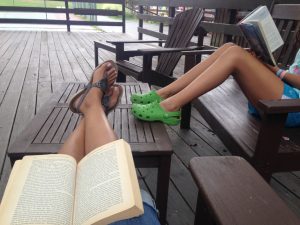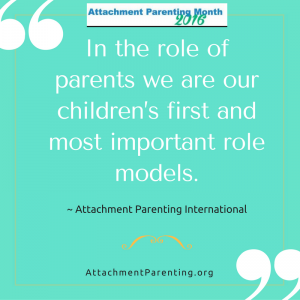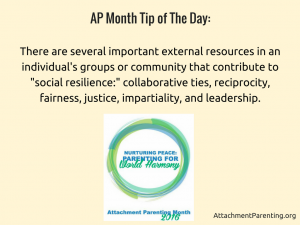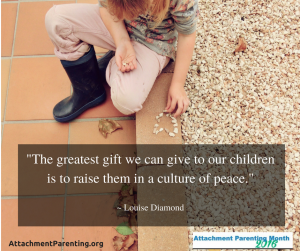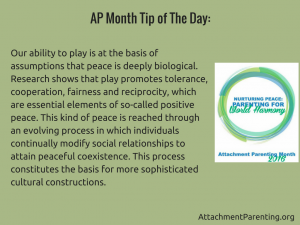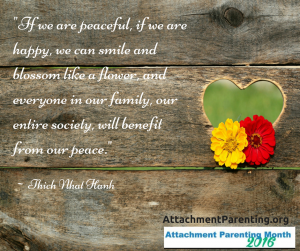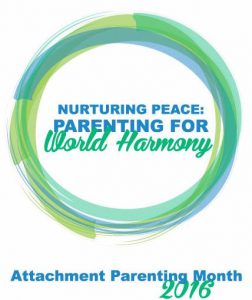 What is the key to promoting peace and harmony in our world?
What is the key to promoting peace and harmony in our world?
In view of all the recent unrest and violence in our country and around the world, it’s a timely and imperative question.
It’s a question I often reflect on. As the mother of two young children, I’ve come to the realization that my role as a parent is not merely to raise my kids to be healthy, happy and successful adults — it’s much bigger than that: it is to raise kids who one day will become adult members of our society. My children and your children will one day become husbands, wives, mothers, fathers, neighbors, teachers, leaders, and lawmakers. With that realization, I feel an immense sense of responsibility.
I believe parenting practices — what parents model as an acceptable and appropriate behavior — has great consequences and implications that cascade beyond the home.
Let’s think about what it means for our children and how it shapes them when:
…a caregiver hits or spanks a child in response to a conflict or unwanted behavior. What messages is the child receiving in regards to managing anger, conflict resolution, and inflicting pain — both physical and emotional — on another being?
…we sleep-train a child — letting them cry themselves to sleep, ignoring their natural need to be soothed and comforted. How may it impact a sibling who is observing Mommy or Daddy not attending to the distressed young child? He may be learning it is acceptable to dismiss one’s need for soothing and compassion.
…the parent-child relationship is based on mutual respect, trust, and collaboration rather than control, manipulation, and fear. How does teaching collaboration and navigating together to reach resolutions prepare a child for future relationships? What does a child learn about handling disagreements when the parent is in the role of the unquestionable authority figure, as in “because I said so!” or “because I’m the boss!”?
…a child joins his mom as a volunteer at a soup kitchen to help others who are less fortunate, or he witnesses his dad stopping at the side of the road to help a stranded stranger.
It means that when we show empathy, we teach empathy; and when we show compassion, we teach compassion.
The child who has been nurtured with empathy and compassion is the child and adult who will extend his hand to another person, not swing his hand. He will be the one who lifts others, not belittles. He will grow to be the adult in society who promotes peace and harmony, not discord, because these are the values and tools imparted in him by his first and most significant role models: his parents.
Echoing in my mind is an incident that took place a few months ago: I clumsily hit the blow dryer against my left eyebrow bone. The sharp pain was agonizing. I clutched my bruise and knelt down to the floor uttering a few groans. My 8-year-old son was nearby. He came over, knelt down, and gently moved my hands and kissed my bruise. “Is it better now, Mommy?” he asked. While trying to hold back my groans, I replied: “A little. Thanks, my love.” He gave me a hug, then inspected the bruise, and said: “Maybe you can do some Reiki on it later.” I was in awe. My eyes were moist — no longer from the pain, but from experiencing the sensitivity and compassion he displayed: He sensed my pain and responded to it with tender sincerity.
In that moment, I was awash with joy and pride, and I thought, this is the kind of adult I aspire to release to this world: one that possesses empathy and compassion for others.
In that ordinary yet profound moment, I appreciated that all of the patience, compassion, responding with sensitivity, and positive discipline I have practiced raising my children. It all paid off in an extraordinary way.
The path to promoting peace and harmony may be simpler and more fundamental than we perceive it to be. It can be more effectively accomplished with the action of planting the seeds, rather than trimming the trees.
 Parents, we are the key: Peace and harmony start with us!
Parents, we are the key: Peace and harmony start with us!
We are the peacemakers and peacebreakers of the world. If we want a more peaceful world for our children and the next generations, we ought to exemplify one for them. If as parents, we model sensitivity, empathy and harmony, our children will carry themselves through life, and react in the same manner when they encounter conflicts and adversities — for these are the tools we have been giving them.
Let’s plant those seeds and watch them grow and spread — one family, one community, one country at a time.

